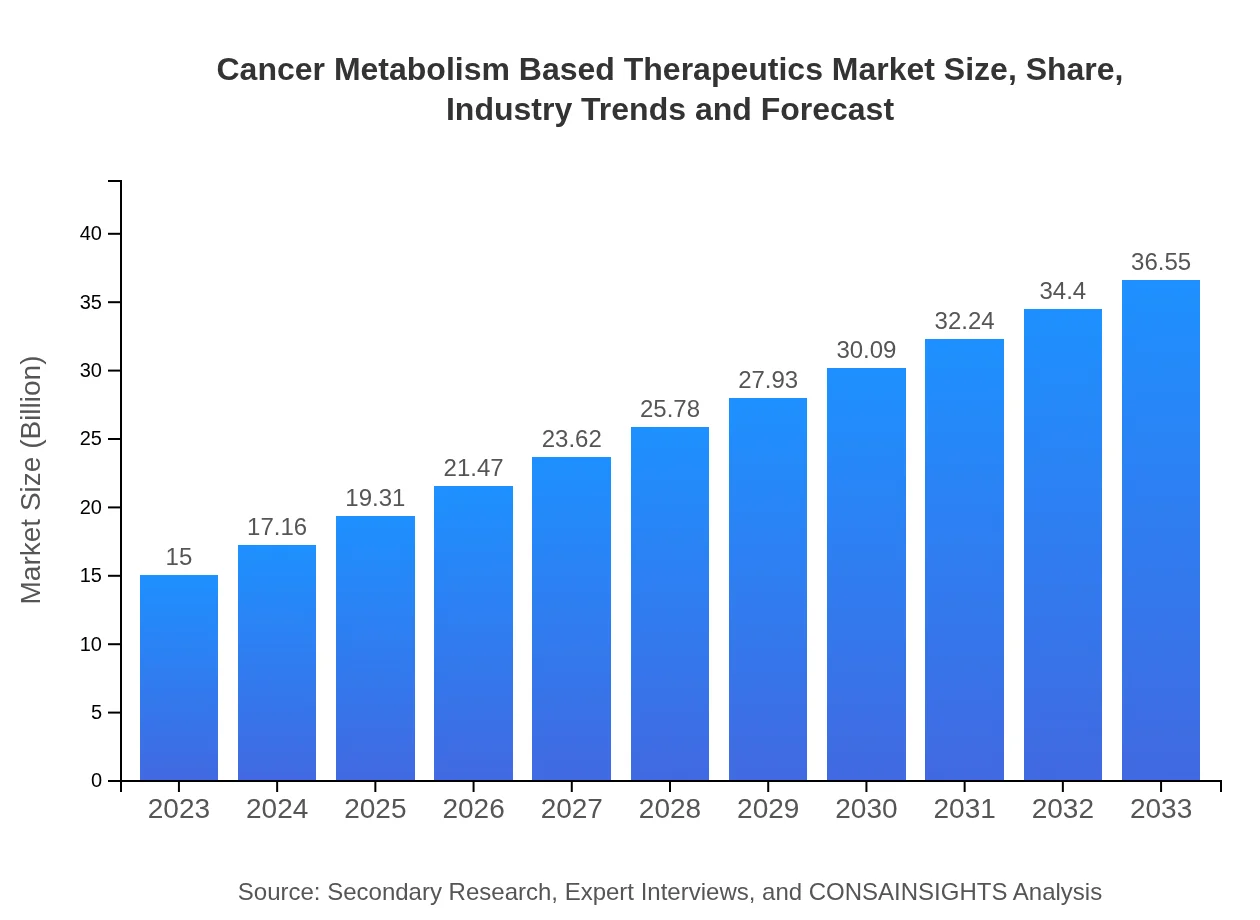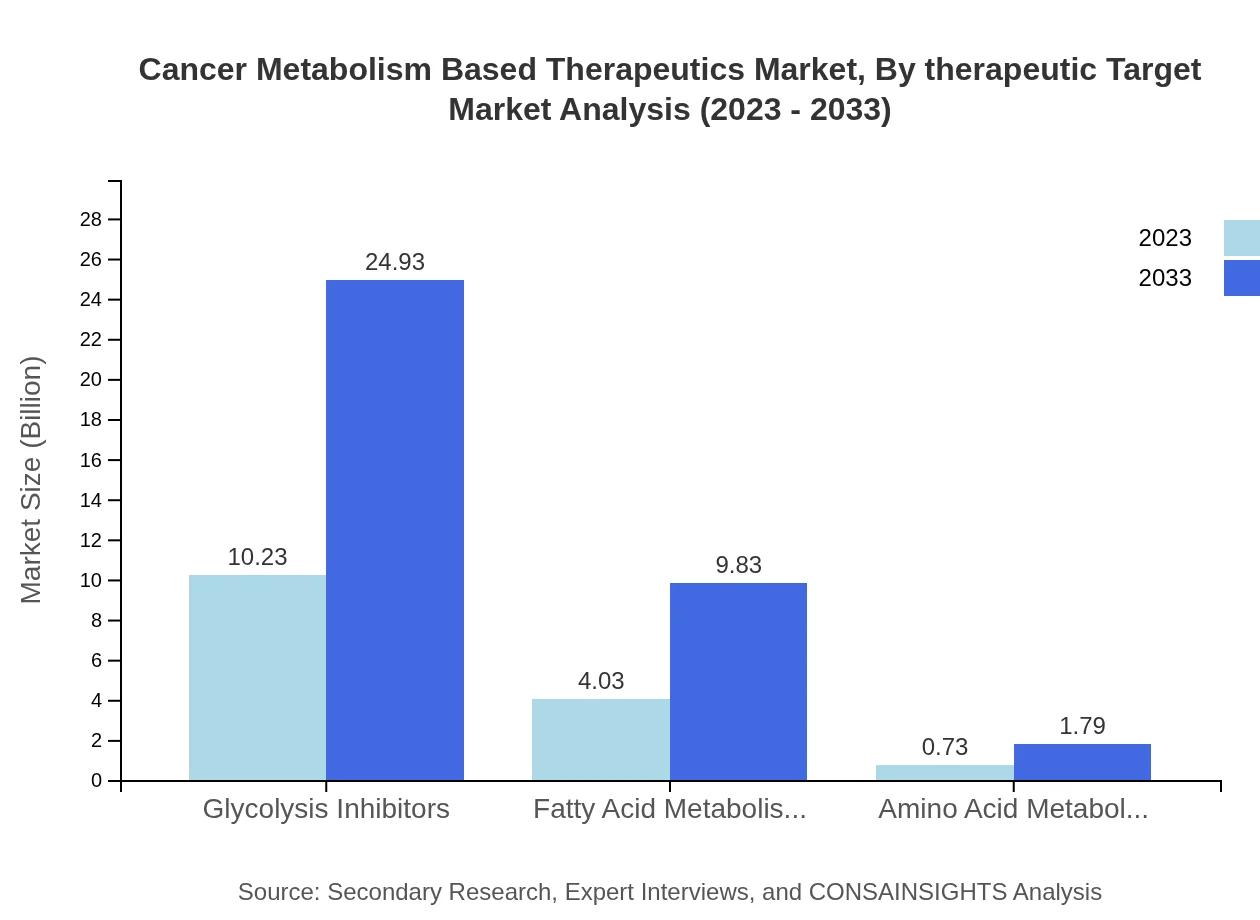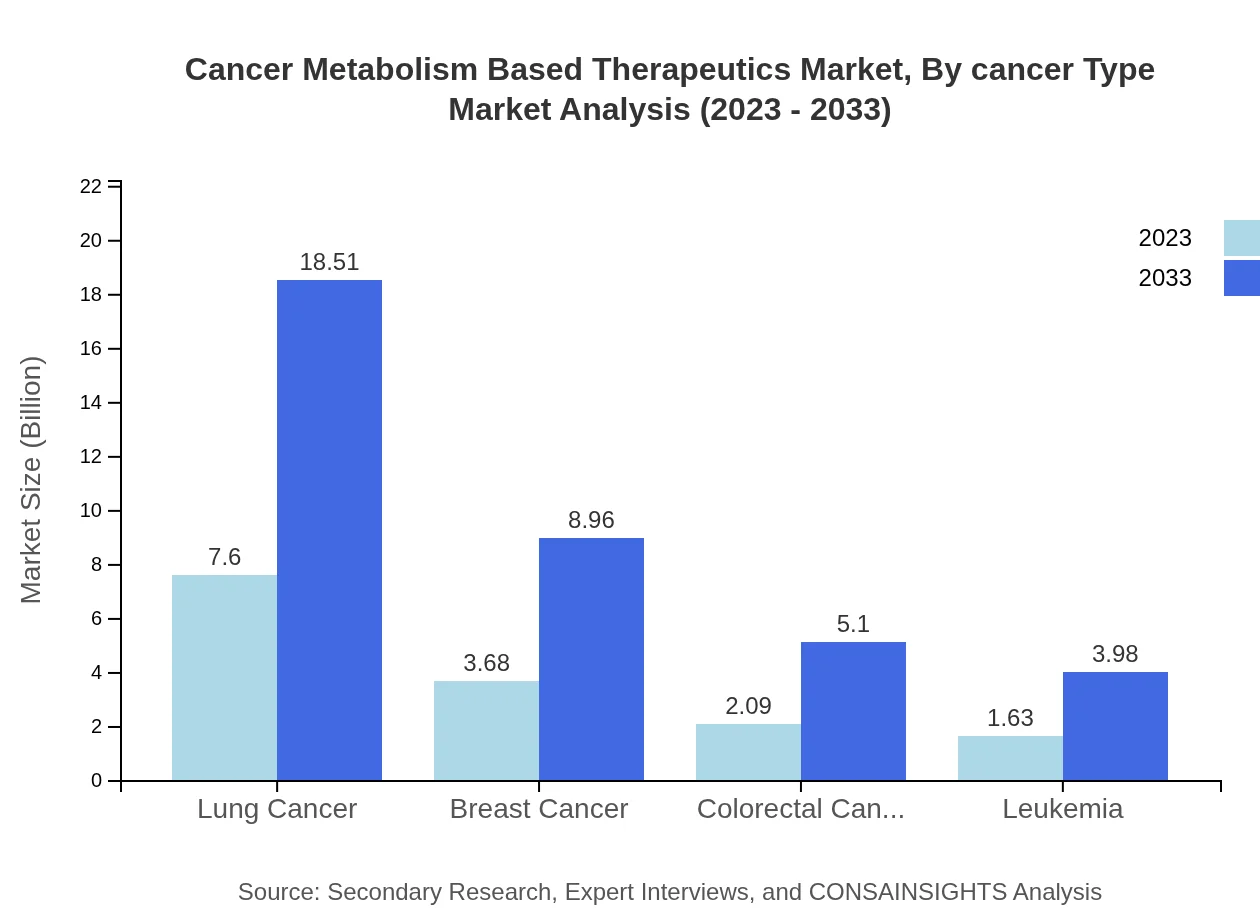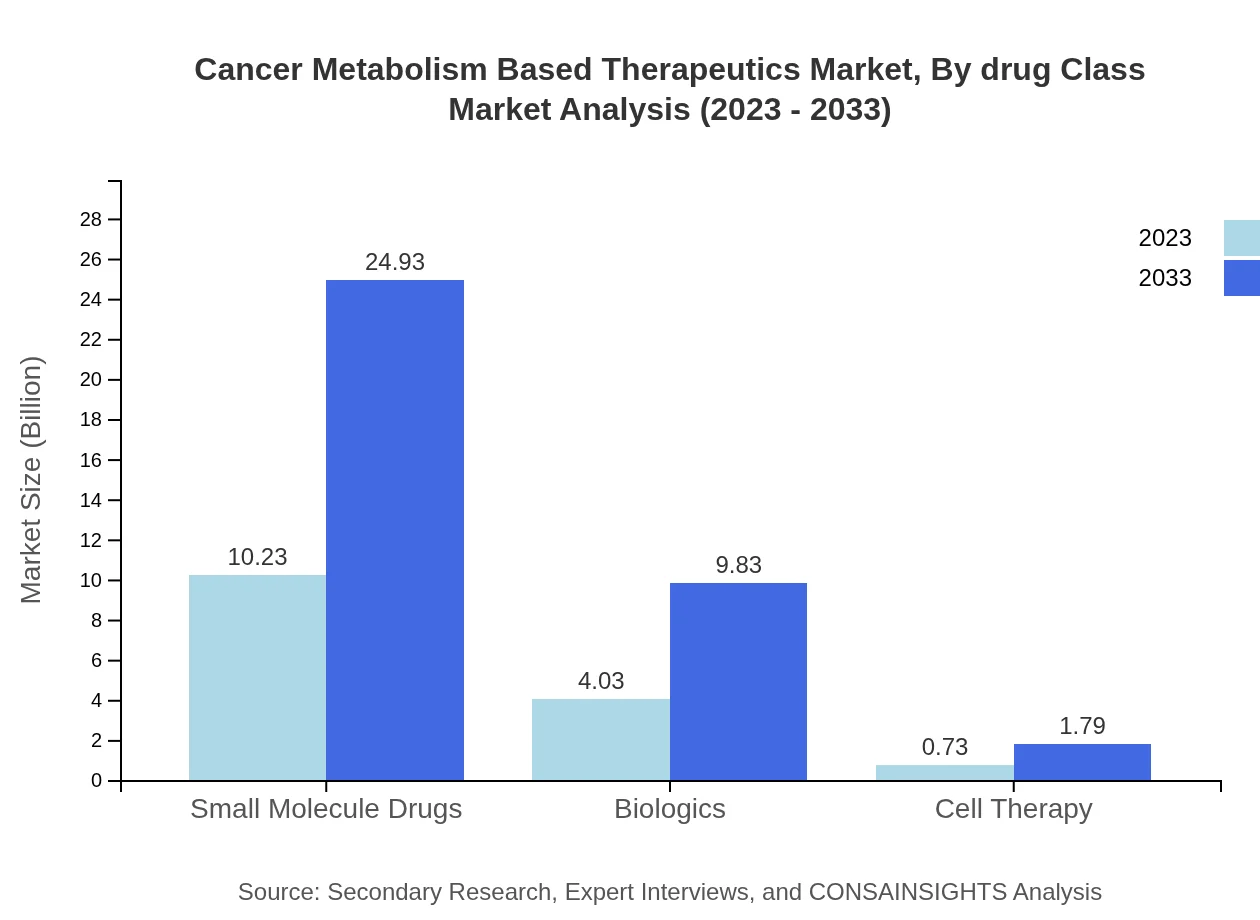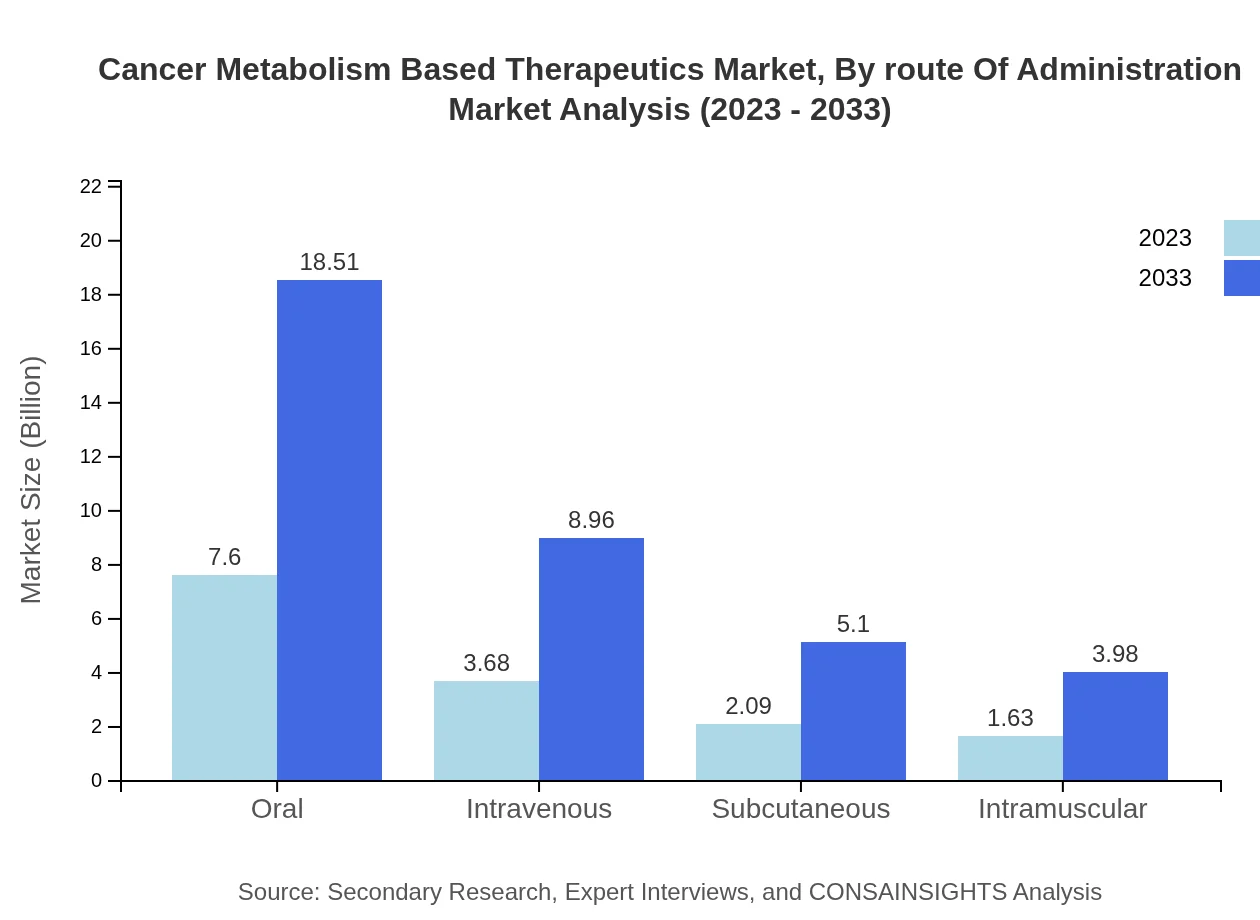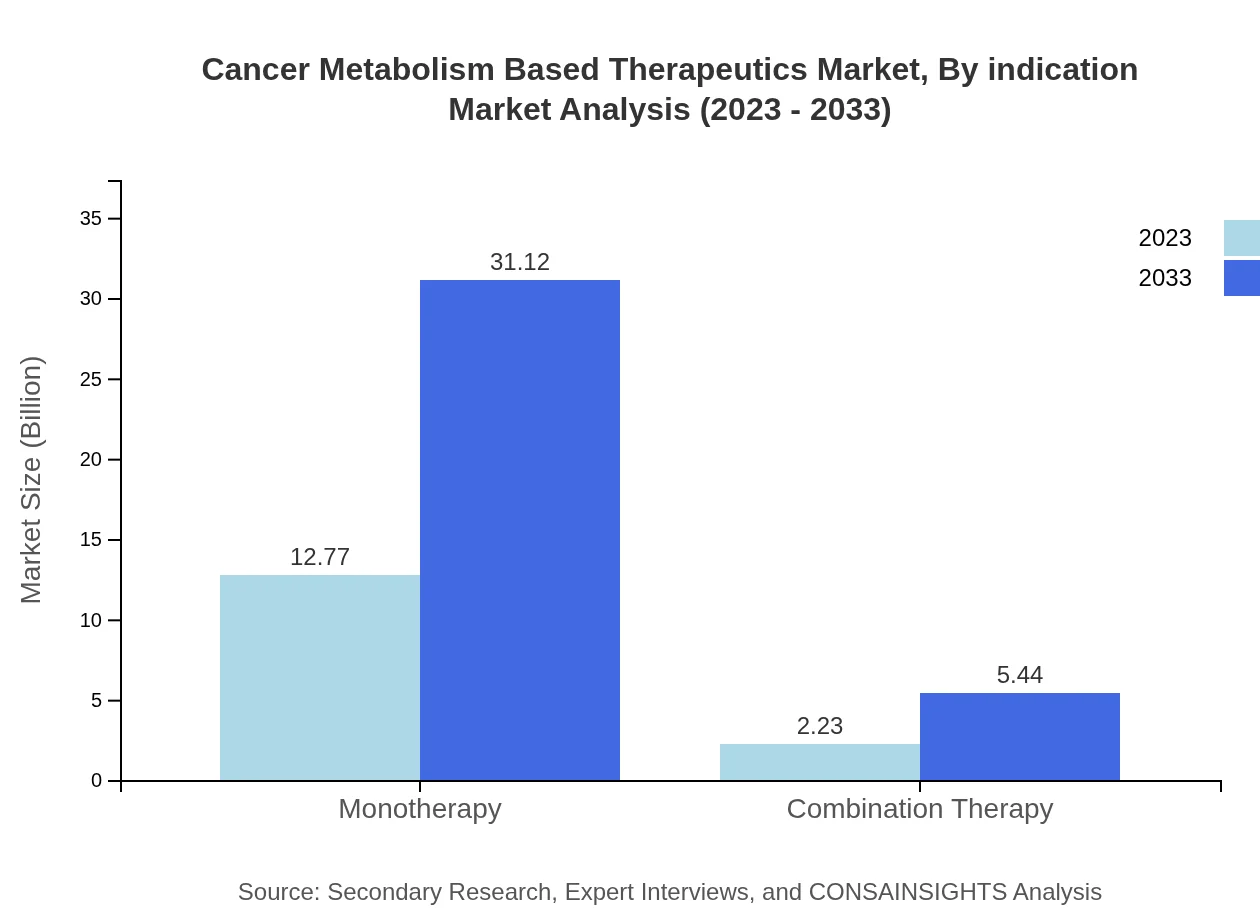Cancer Metabolism Based Therapeutics Market Report
Published Date: 31 January 2026 | Report Code: cancer-metabolism-based-therapeutics
Cancer Metabolism Based Therapeutics Market Size, Share, Industry Trends and Forecast to 2033
This report provides in-depth insights into the Cancer Metabolism Based Therapeutics market, exploring trends, segmentation, regional dynamics, and forecasts up to 2033. It aims to equip stakeholders with essential data to make informed decisions in this evolving landscape.
| Metric | Value |
|---|---|
| Study Period | 2023 - 2033 |
| 2023 Market Size | $15.00 Billion |
| CAGR (2023-2033) | 9% |
| 2033 Market Size | $36.55 Billion |
| Top Companies | Amgen Inc., AstraZeneca PLC, Thermo Fisher Scientific, Roche Holding AG, Bristol Myers Squibb |
| Last Modified Date | 31 January 2026 |
Cancer Metabolism Based Therapeutics Market Overview
Customize Cancer Metabolism Based Therapeutics Market Report market research report
- ✔ Get in-depth analysis of Cancer Metabolism Based Therapeutics market size, growth, and forecasts.
- ✔ Understand Cancer Metabolism Based Therapeutics's regional dynamics and industry-specific trends.
- ✔ Identify potential applications, end-user demand, and growth segments in Cancer Metabolism Based Therapeutics
What is the Market Size & CAGR of Cancer Metabolism Based Therapeutics market in 2023?
Cancer Metabolism Based Therapeutics Industry Analysis
Cancer Metabolism Based Therapeutics Market Segmentation and Scope
Tell us your focus area and get a customized research report.
Cancer Metabolism Based Therapeutics Market Analysis Report by Region
Europe Cancer Metabolism Based Therapeutics Market Report:
The European market is projected to grow from USD 4.56 billion in 2023 to USD 11.12 billion by 2033, supported by the region's strong regulatory frameworks and various initiatives promoting research into cancer metabolism.Asia Pacific Cancer Metabolism Based Therapeutics Market Report:
The Asia Pacific region is poised for considerable growth in the Cancer Metabolism Based Therapeutics market, projected to reach USD 6.88 billion by 2033, up from USD 2.82 billion in 2023. This growth is driven by increased investments in healthcare infrastructure and rising awareness of cancer therapies among patients and healthcare providers.North America Cancer Metabolism Based Therapeutics Market Report:
North America leads the market with significant expansion expected from USD 5.70 billion in 2023 to USD 13.89 billion in 2033, attributed to robust research activities, healthcare expenditures, and a growing patient base receiving advanced metabolic therapies.South America Cancer Metabolism Based Therapeutics Market Report:
In South America, the market for Cancer Metabolism Based Therapeutics will grow modestly from USD 0.94 billion in 2023 to USD 2.28 billion by 2033. Enhanced accessibility to novel therapies and government initiatives to improve cancer care are key factors contributing to this growth.Middle East & Africa Cancer Metabolism Based Therapeutics Market Report:
The Middle East and Africa's market will increase from USD 0.97 billion in 2023 to USD 2.37 billion by 2033, propelled by improvements in healthcare facilities and increasing awareness about cancer metabolism targeting treatments.Tell us your focus area and get a customized research report.
Cancer Metabolism Based Therapeutics Market Analysis By Therapeutic Target
The therapeutic target segmentation reveals a strong inclination towards small molecule drugs, which are projected to dominate the market, accounting for approximately 68.2% of the revenue share in 2023 and expected to maintain the same share by 2033. Biologics are also essential players, capturing 26.9% of the market. The steady growth of these segments can be attributed to the increasing number of clinical trials and rising approvals for new drug entities.
Cancer Metabolism Based Therapeutics Market Analysis By Cancer Type
Segmenting by cancer type, lung cancer dominates the Cancer Metabolism Based Therapeutics market with an anticipated revenue share of 50.64% in 2023, projected to grow significantly with the rise in lung cancer cases. Other significant types include breast cancer at 24.52%, followed by colorectal cancer at 13.95%. These figures highlight the urgent need for targeted therapies in these critical areas.
Cancer Metabolism Based Therapeutics Market Analysis By Drug Class
The market is witnessing significant growth in glycolysis inhibitors and fatty acid metabolism modulators, which are expected to account for a combined market share of more than 95% by 2033. The shift towards targeted mechanisms of action is primarily responsible for this trend, as these classes are at the forefront of metabolic therapies being developed.
Cancer Metabolism Based Therapeutics Market Analysis By Route Of Administration
Oral administration will continue to dominate the market, controlling about 50.64% of the share in 2023, with significant growth expected over the decade. Intravenous and subcutaneous routes are also noteworthy, with respective shares of 24.52% and 13.95%.
Cancer Metabolism Based Therapeutics Market Analysis By Indication
Indications remain a crucial segment, with monotherapy comprising approximately 85.13% of the market in 2023. Combination therapies are gradually gaining traction, but monotherapy continues to lead due to its established efficacy in major cancer types.
Cancer Metabolism Based Therapeutics Market Trends and Future Forecast
Tell us your focus area and get a customized research report.
Global Market Leaders and Top Companies in Cancer Metabolism Based Therapeutics Industry
Amgen Inc.:
Amgen is a leading biotechnology company focused on discovering, developing, and delivering innovative human therapeutics. Its emphasis on metabolic drugs has led to groundbreaking therapies in cancer treatment.AstraZeneca PLC:
AstraZeneca specializes in global medicine and has a robust pipeline of research-targeting metabolic pathways in cancer cells, especially in oncology.Thermo Fisher Scientific:
Leading in diagnostics and biotechnological innovations, Thermo Fisher supports oncology research through advanced tools and platforms.Roche Holding AG:
Roche is a pioneer in the development of targeted cancer therapies and continues to advance metabolic treatment modalities.Bristol Myers Squibb:
BMS focuses on novel immunotherapies and therapies targeting cancer metabolism, significantly impacting treatment paradigms.We're grateful to work with incredible clients.









FAQs
What is the market size of cancer Metabolism Based Therapeutics?
The global cancer metabolism-based therapeutics market is estimated to be valued at $15 billion in 2023, with a projected compound annual growth rate (CAGR) of 9% through 2033. This growth reflects increasing investment in innovative cancer treatment approaches.
What are the key market players or companies in this cancer Metabolism Based Therapeutics industry?
Key players in the cancer metabolism-based therapeutics industry include major pharmaceutical companies and biotech firms focused on developing metabolic modulators and targeted therapies. Their investment in research and development is crucial for advancing treatment options.
What are the primary factors driving the growth in the cancer Metabolism Based Therapeutics industry?
Growth drivers include the rising incidence of cancer, advancements in drug discovery technologies, increased R&D spending, and a growing understanding of cancer metabolism. Additionally, growing patient awareness and demand for personalized medicine are contributing to market expansion.
Which region is the fastest Growing in the cancer Metabolism Based Therapeutics?
The fastest-growing region in the cancer metabolism-based therapeutics market is North America, projected to grow from $5.70 billion in 2023 to $13.89 billion by 2033. Other notable regions include Europe and Asia Pacific, reflecting significant market potential.
Does ConsaInsights provide customized market report data for the cancer Metabolism Based Therapeutics industry?
Yes, ConsaInsights offers customized market report data for the cancer metabolism-based therapeutics industry. Clients can request specific insights tailored to their needs, ensuring comprehensive understanding and effective decision-making.
What deliverables can I expect from this cancer Metabolism Based Therapeutics market research project?
Deliverables include detailed market analysis, segment-wise breakdown, growth forecasts, competitive landscape insights, and regional market performance. In-depth reports provide actionable insights for strategic planning and investment decisions.
What are the market trends of cancer Metabolism Based Therapeutics?
Current trends in the cancer metabolism-based therapeutics market include increased focus on personalized therapies, growth in combination therapies, and the rise of biologics. Additionally, expanding research on metabolic pathways offers new opportunities for drug development.

